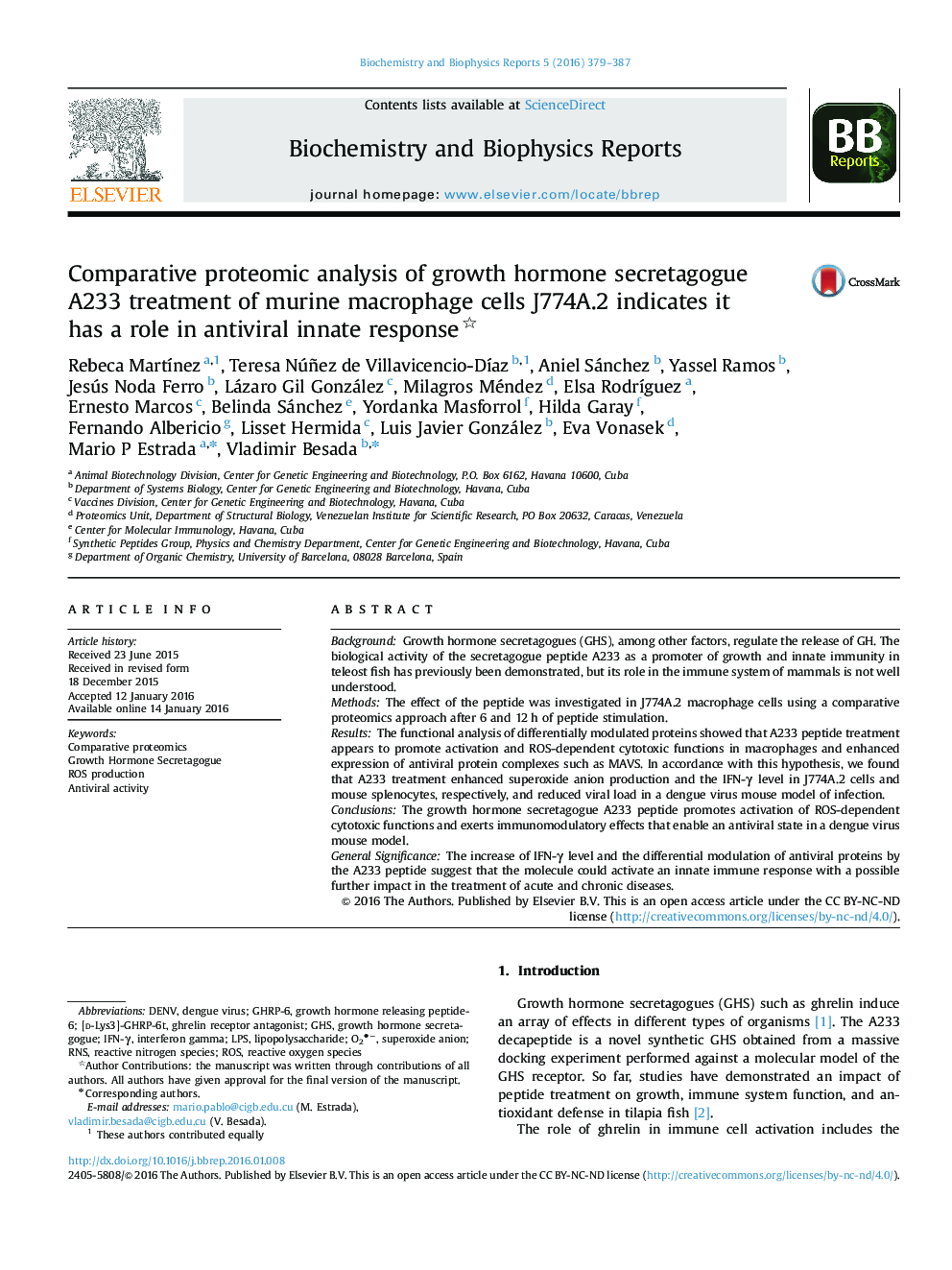| کد مقاله | کد نشریه | سال انتشار | مقاله انگلیسی | نسخه تمام متن |
|---|---|---|---|---|
| 1941744 | 1536903 | 2016 | 9 صفحه PDF | دانلود رایگان |

• Peptide treatment increases superoxide anion production in J774 macrophage cells.
• A233 peptide treatment increases INF-γ levels in mouse splenocytes.
• Mice treated with A233 significantly reduce viral load after challenge with DENV-3.
• Peptide treatment may activates cytotoxic functions and exert an antiviral effect.
BackgroundGrowth hormone secretagogues (GHS), among other factors, regulate the release of GH. The biological activity of the secretagogue peptide A233 as a promoter of growth and innate immunity in teleost fish has previously been demonstrated, but its role in the immune system of mammals is not well understood.MethodsThe effect of the peptide was investigated in J774A.2 macrophage cells using a comparative proteomics approach after 6 and 12 h of peptide stimulation.ResultsThe functional analysis of differentially modulated proteins showed that A233 peptide treatment appears to promote activation and ROS-dependent cytotoxic functions in macrophages and enhanced expression of antiviral protein complexes such as MAVS. In accordance with this hypothesis, we found that A233 treatment enhanced superoxide anion production and the IFN-γ level in J774A.2 cells and mouse splenocytes, respectively, and reduced viral load in a dengue virus mouse model of infection.ConclusionsThe growth hormone secretagogue A233 peptide promotes activation of ROS-dependent cytotoxic functions and exerts immunomodulatory effects that enable an antiviral state in a dengue virus mouse model.General SignificanceThe increase of IFN-γ level and the differential modulation of antiviral proteins by the A233 peptide suggest that the molecule could activate an innate immune response with a possible further impact in the treatment of acute and chronic diseases.
Journal: Biochemistry and Biophysics Reports - Volume 5, March 2016, Pages 379–387